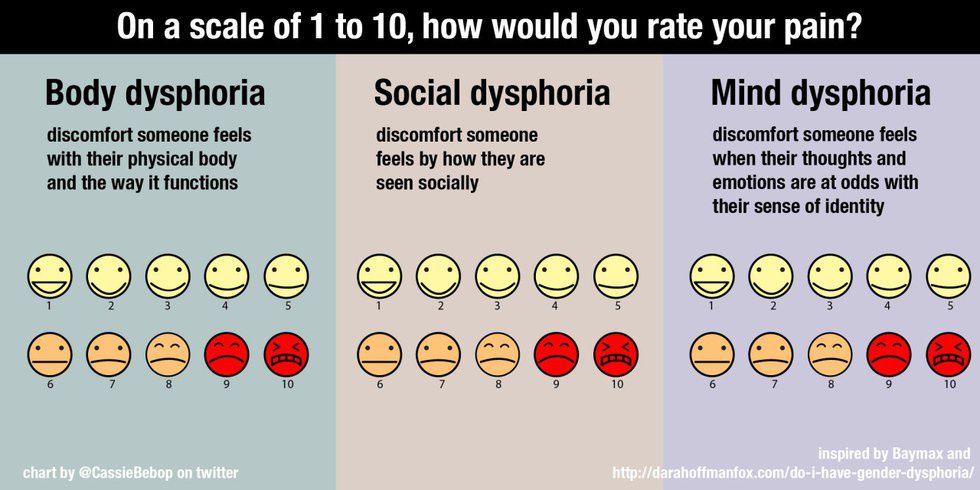The city of Greensboro is known for its celebrated diversity and unification of different types of people. So it comes as no surprise that the University of North Carolina at Greensboro is a very inclusive place for people of any type of background. UNC Greensboro also offers an accommodating environment to LGBT students.
Shortly after moving in, I met Bibi Miller, who identified as gender-nonconforming. At this point in my life, I had yet to make anybody who was not cisgendered. Now, Bibi identifies more as transgender. Our blooming friendship and her experiences have given me a new perspective on what obstacles transgender people might face. I asked Bibi some questions in hopes that whoever reads this would have a better understanding of what it is like for people who are not cisgendered
1. What lead you to realize that your gender was different?
"It was a gradual process. Back in 2014, I came out as gay to my peers. That was a really liberating thing for me to do; I now had more freedom to explore/express certain aspects of my identity that I had suppressed for years(or maybe that I was not even aware of. My attention shifted (pretty dramatically) from my sexual orientation to my gender identity."
Bibi says that her story is not like many you may see in mainstream media. "I did always know since a young age nor did I try on my mothers' makeup when I was young." she says. "That being said, it is important that people to know that everyone in the transgender community has had their own unique journey; no one story is more or less valid than another.
2. How do you feel when someone misgenders you?
"Misgendering is easy for me to forgive, but very hard for me to forget" She says. "This may sound harsh, but even if the person who misgenders me quickly apologizes and corrects themselves, I will always remember that in their eyes (and in the eyes of others) I was seen as a "he/him/his" or a "sir."
She says that someone misgendering her is a tremendous blow to her self-confidence. She wants to stress to people that she feels no hostility or anger afterward. Bibi says she knows that sometimes calling someone the wrong pronoun can be an innocent mistake. But it affects her self-consciousness.
3. In August, your pronouns were "they, them, theirs" had you not realized your true gender identity? Or did you not feel comfortable using the "she, her, hers" pronouns?
Bibi says that when she identified as gender non-conforming, she felt that she had yet to "earn the 'she' status." Namely, she presented herself as more androgynous than feminine. She says that her transition will be a gradual one. It is important that people understand that not all transitions go at the same pace and that not everyone identifies as male or female.
4. What is gender dysphoria?
Gender dysphoria is when a person feels a certain discomfort when it comes to their gender identity and their biological sex. Bibi says that people who struggle with this feel very uncomfortable in their body. They start to hate their own body. She also says that when dysphoria hits, trans people may lose their will to do anything. One's confidence is basically gone.
5. What do you want cisgender people to understand about being transgender?
"Have empathy. Gender affects nearly every aspect of life. Think about how much gender truly means to you. It plays a big role in society. Gender identity and body image are deeply personal issues to the trans community. People should not take their cisgender, gender conforming identity for granted."





















